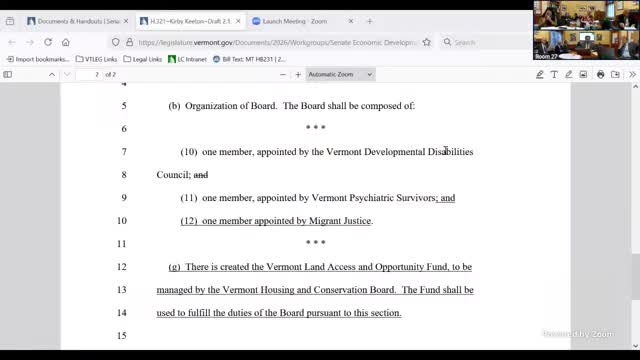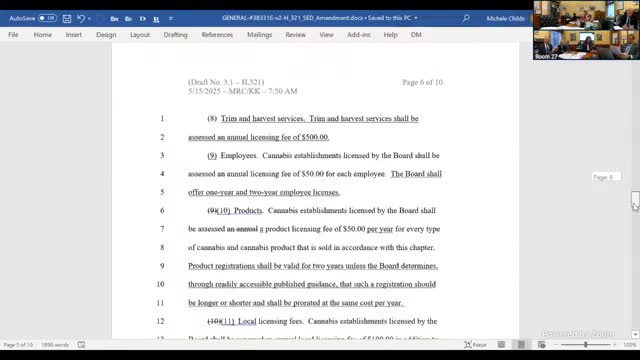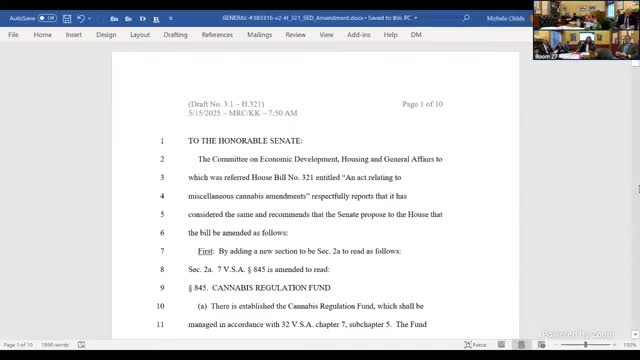Article not found
This article is no longer available. But don't worry—we've gathered other articles that discuss the same topic.

Committee considers routing excess cannabis excise revenue to land‑access fund for impacted communities

Committee approves pilot framework for cannabis ‘showcase’ events with reporting and event limits

